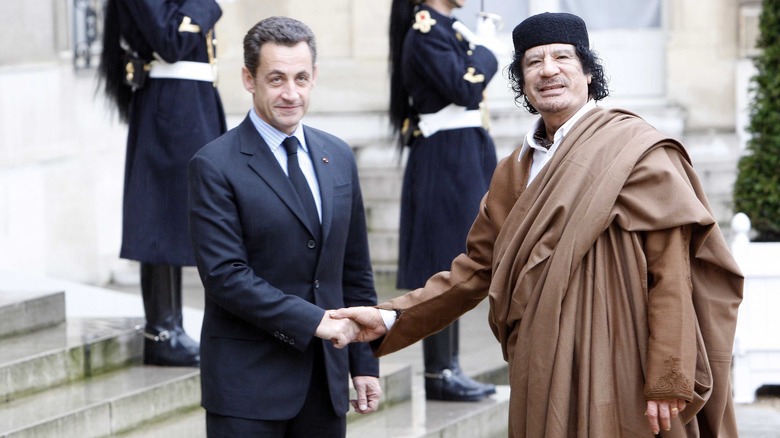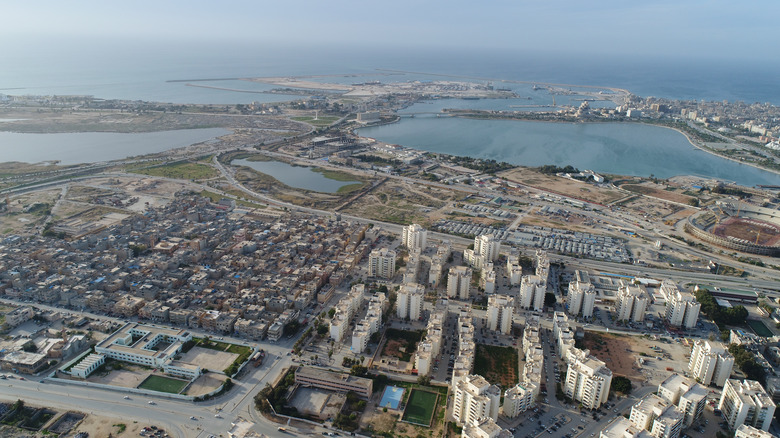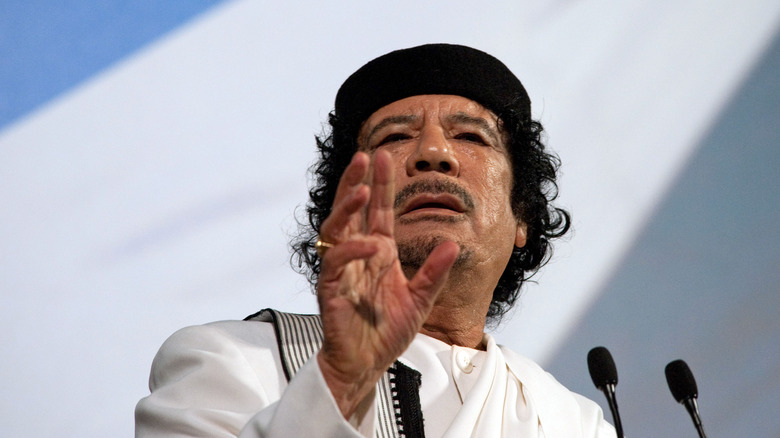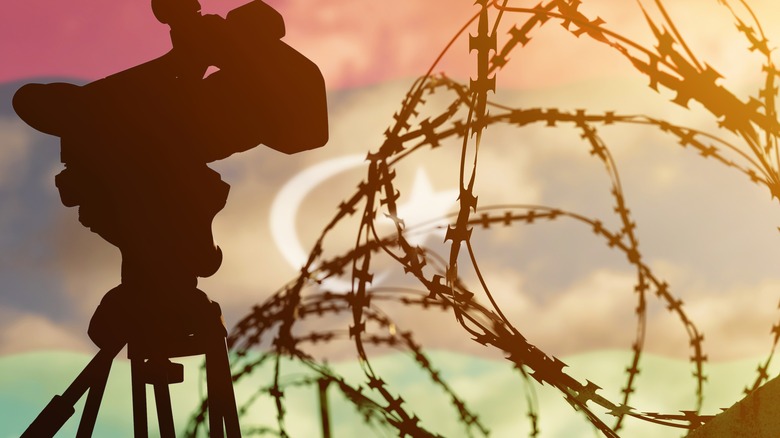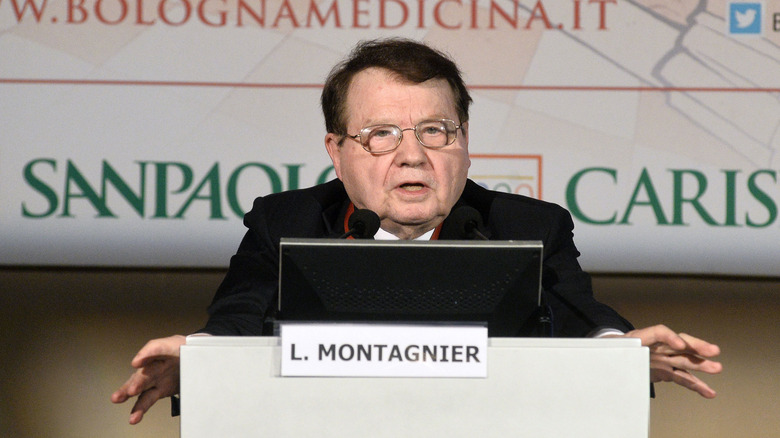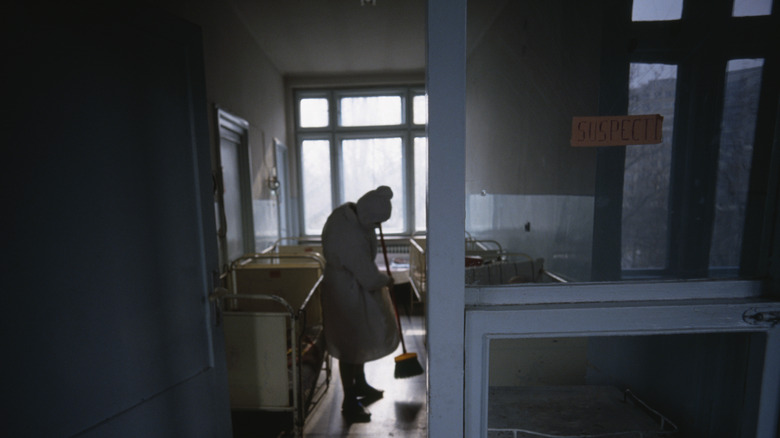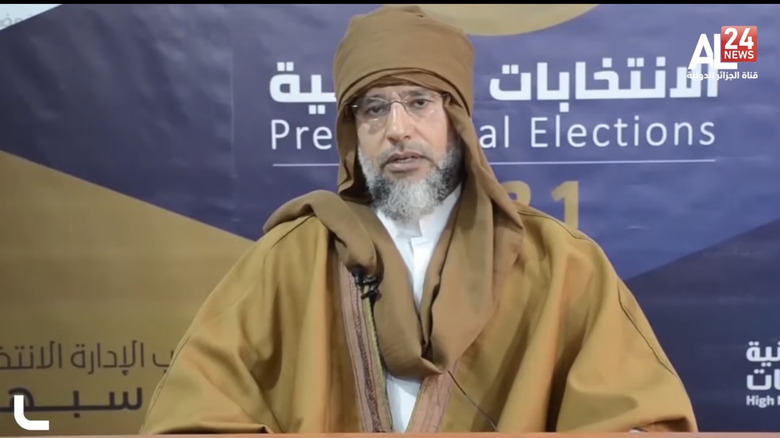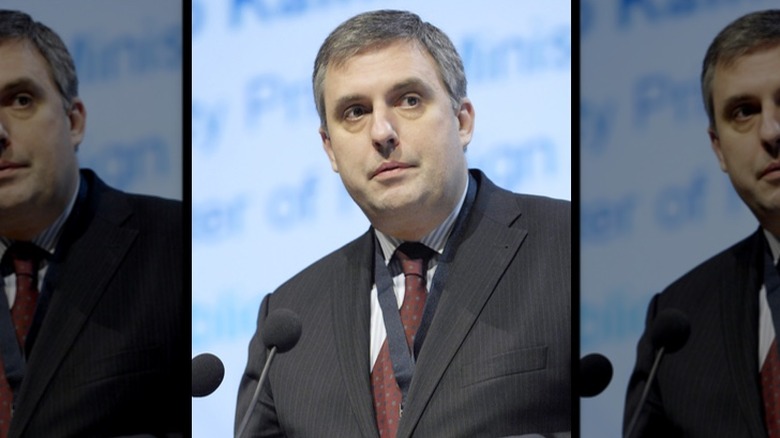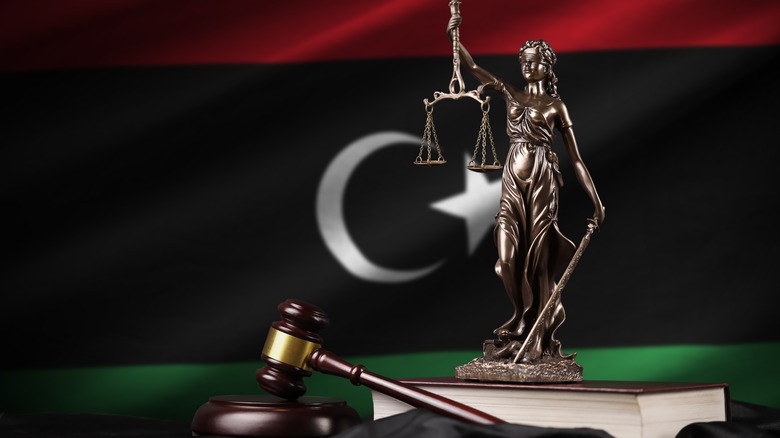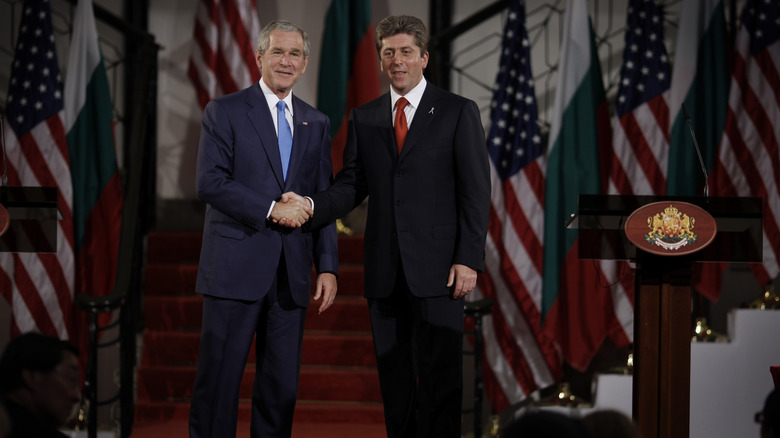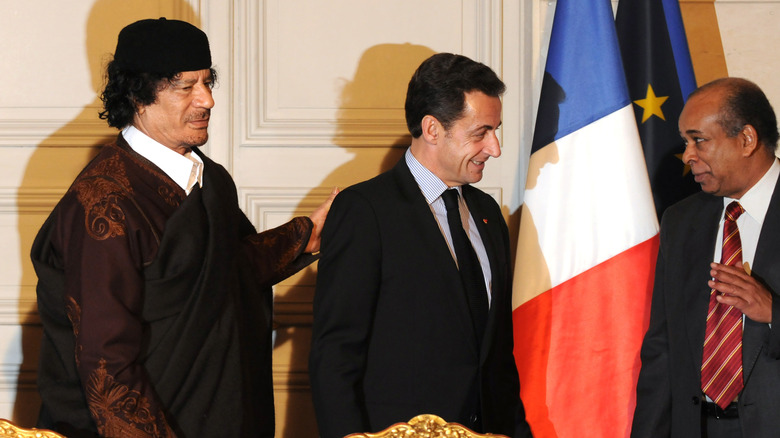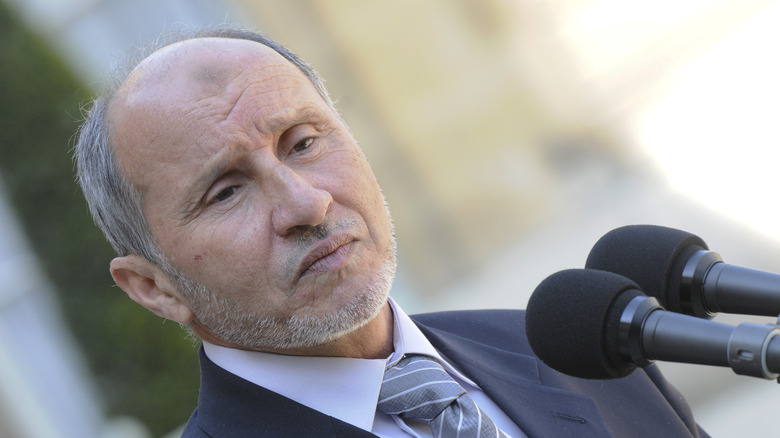The Dark Real-Life Story Of The HIV Trial In Libya
In July 2007, five Bulgarian nurses and a Palestinian doctor accused of intentionally infecting Libyan children with HIV landed in Sofia, ending eight years of captivity and torment at the hands of Muammar Gaddafi's regime. They no doubt were relieved after escaping a death sentence for murder.
Although the case was on the surface about HIV, politics and money were never far from the courtroom. The case came at a time when Libya was on the verge of having crippling economic sanctions – fallout from the 1988 Lockerbie Bombing of Pan Am Flight 103 – lifted. Western governments and corporations, who coveted Libya's oil and gas reserves, were keen to see that through, giving Muammar Gaddafi plenty of room to play brinkmanship with the defendants' lives for some bigger, better deals and concessions.
In the end, everyone but the victims – the infected children and the workers – walked out richer and more powerful than before. Here is the harrowing story of the Libyan HIV trial and the complex matrix of interests that led to the workers' detention, conviction, and eventual release.
The initial finger-pointing
The Libyan HIV crisis of 1998 began when staff at Benghazi's Al-Fateh Hospital discovered a cluster of 393 HIV-positive children. Its origin was unclear, but suspicion soon fell upon foreign medical workers, including a contingent of Bulgarian nurses and a Palestinian doctor. They were detained without charges for about a year.
As Libya debated whether to charge them, Libyan President Muammar Gaddafi found himself facing potential embarrassment and political blowback. The infected children's families wanted answers, and even invaded a Health Ministry conference to protest the government's perceived intransigence. Although Gaddafi promised tough sentences for the perpetrators, there were doubts about his sincerity, given his actions following the outbreak.
While Libya had officially been HIV-free before the outbreak, per the Libyan Journal of Medicine, there were reports that HIV cases had already been on the upswing since 1990. If true, then Libya's HIV-free status was based on cooked statistics. If the statistics were fabricated, it meant the government had ignored poor hygienic practices in hospitals that could have exposed the children to infection, or covered up the outbreak to save face internationally.
Charges are finally filed
Although the initial outbreak officially started in 1998, the Libyan government waited until 2000 to file charges. When the government finally did, it charged two sets of medical personnel with two sets of crimes. The first group, consisting exclusively of Libyan hospital administrators and support staff at Benghazi's Al-Fateh Hospital, were charged with negligence. Among the specific counts were failing to inform the families of their children's HIV status, exposing 19 mothers to HIV, withholding prophylaxis, and hiding lab results. The director and a second high-ranking administrator were also charged with abuse of office for personal gain.
The charges against the second group, five Bulgarian nurses and two doctors — one Bulgarian and the other Palestinian — were far more serious. The principal charge was 23 counts of capital murder by intentionally injecting the children with HIV. The virus was still considered a death sentence then, especially where treatment was not easily available, so more were expected to follow. Three nurses also faced charges of extra-marital sex with the Palestinian doctor and plying him with alcohol (illegal in Libya) to rope him into their alleged crime. The most serious charge, however, was capital conspiracy against the Libyan nation – Gaddafi and his government accused the workers of being Western agents tasked with spreading HIV into the Libyan population to destabilize the country.
Muammar Gaddafi's position
The case shocked the world. Either the charged medical workers were evil beyond repair, or Muammar Gaddafi had ulterior motives for prosecuting the workers. His reactions to the outbreak suggested the latter.
Gaddafi initially blamed the American CIA and the Israeli Mossad for the outbreak. Piecing together several strands of evidence, he had good reason to blame outside forces. The Libyan magazine "La" – not the Western press – first reported the outbreak. If the outbreak really was a foreign destabilization attempt, as Gaddafi alleged, the magazine's report should have been a favor to the president. Instead, Gaddafi shuttered the magazine because it had gathered testimony suggesting the country's health services were responsible. Only after that report did Libya go after foreign medical workers writ large.
If the medical workers were innocent, then the charges were potentially a cover-up on Gaddafi's part combined with cynical opportunism. The British Medical Journal reported in 2001 that Libya had not turned over any AIDS data to the UNAIDS program of the United Nations between 1998 and 2000. But former health czar Suleiman al-Gamary said that Libya's medical infrastructure was deteriorating under Euro-American sanctions. By charging, convicting, and executing the workers, Gaddafi would in one fell swoop present himself as the defender of Libya's children against Western economic imperialism (which had, per Libya, caused the outbreak), while covering up any potential negligence on his government's part.
The first trial and allegations of torture
The first of three trials took place before the Libyan People's Court in 2001, after a year's delay over logistical issues. In 2002, Libya did not inform Bulgaria of the capital charges its citizens faced, leading to concerns about the fairness of the charges and trial rules. It went ahead once the defendants were granted access to Bulgarian consular representatives and lawyers.
The prosecution's case rested upon the Bulgarian nurses' confessions and testimony that Palestinian co-defendant Dr. Ashraf al-Hadjudj made against them during prison interrogations. At the trial, however, the nurses retracted their confessions, citing torture by electric shocks, beatings, sexual abuse, and deprivation of water — later corroborated by Muammar Gaddafi's son Saif al-Islam in 2007. Dr. Al-Hadjudj also retracted his testimony on the same grounds.
Without the confessions, the government's case unraveled as inconsistencies in the indictment emerged. One of the nurses had not worked on the day the children were allegedly injected with HIV. Vials of HIV-positive blood allegedly found in nurse Kristiyana Vulcheva's apartment – evidence Libya presented as a smoking gun – could not be definitively traced to her. In fact, she claimed no knowledge of them. The defense lawyers argued Libya's deteriorating medical infrastructure was to blame, in agreement with La's reporting. The defendants were partially vindicated when the court threw out the conspiracy charge for lack of evidence in 2002, and remanded the case to the National Prosecutor's office for a second trial.
The scientists speak up at the second trial
Since the Libyan People's Court dealt with national security cases, it did not have the jurisdiction to try the defendants after the conspiracy charge was dropped. Thus, the second trial began in Libyan criminal court in September 2003, this time with testimony from two of the world's foremost HIB experts – virus co-discoverer Jean-Luc Montagnier (pictured) and acclaimed Italian virologist Vittorio Colizzi.
In their statement (via Nature), the virologists concluded from hospital data and viral analyses that none of the children had been intentionally injected with HIV. The outbreak had likely begun in 1997 or earlier, while the defendants had arrived in Libya in February 1998. Instead, Montagnier and Colizzi reiterated that poor hygiene and reuse of equipment such as needles likely caused the outbreak. Intentional infection of the children with HIV did not explain how two workers at the Benghazi hospital were also infected. HIV infection of medical workers was extremely rare, but when it did happen, the two virologists implied that it was due to substandard hygiene — like that observed in Benghazi.
While the statement seemed to definitively absolve the Bulgarians and Palestinian of responsibility for the outbreak, there was still the question of their possible negligence. A 2007 Libyan Medical Journal article argued that although Montagnier and Colizzi's conclusions regarding intentionality were likely correct, poor hygiene alone was unlikely to cause such a large infection cluster. However, it did not accuse the professionals of specific malpractice.
An analog case from the Eastern Bloc
As the trial wore on, experts pointed out that Romania's experience with HIV could provide clues to the cause of the Benghazi cluster. In the 1980s, Romania suffered a surprise childhood HIV outbreak, and The Washington Post reported in 1990 that it was unexpected because Romania's adult HIV rate, like Libya's, was low, even among mothers of infected children – the classic mode of transmission to minors. Among children in state-run hospitals and orphanages, however, it was over 50% – either it was intentional, or the system had horribly failed.
The Romanian case showed, contrary to Libyan claims of intentionality, that equipment shortages and negligence from higher-ups could cause large juvenile HIV outbreaks. Communist Romania, under Nicolae Ceaușescu and tucked behind the Iron Curtain, experienced shortages of medical equipment such as needles, which were needed for life-saving care like blood transfusions. The Romanian government, however, declared the outbreak and censored any information about it. Thus, it was never addressed.
The Libyan outbreak shared these hallmarks – Gaddafi shut down the publication that reported it and refused to provide HIV data to UNAIDS, while his former health czar had said the outbreak was due to a deteriorating medical industry that was equipment-strapped due to Western sanctions. It is unclear whether the defense cited Romania, but it showed that the Libyan outbreak did not have to be linked to the foreign medical workers, and could very well have resulted from a Libyan cover-up.
The workers are sentenced to death
Despite the scientific evidence from renowned international HIB experts, the five Bulgarian nurses and Palestinian doctor were sentenced to death by firing squad for murder in May 2004. A seventh defendant – Bulgarian Dr. Zdravko Georgiev – was also convicted on lesser charges, but walked after being credited with time served.
The verdict caused outrage in Bulgaria. Foreign Minister Gergana Grancharova told the British Medical Journal, "We can only express shock and utter disbelief at the decision. It is unacceptable for all those who expected a fair conclusion of a trial that has lasted for more than five years." Incredibly, the Libyan medical administrators charged with negligence in the case were all acquitted.
While the verdicts were announced, Muammar Gaddafi's son Saif al-Islam muddied the waters. Although he did not hold an official Libyan government position, Saif was widely considered his father's mouthpiece. The Tuscaloosa News quoted him as saying, "No one is going to execute anyone ... Capital punishment is going to be finished," adding that the death penalty would be restricted to a small number of crimes. The statement suggested the workers would potentially be spared, even though murder was a capital offense — but only if Western governments gave Libya concessions. Tripoli floated Bulgarian monetary compensation for the victims' families, or the extradition of the nurses back to Bulgaria, in return for the release of a convicted Lockerbie bomber imprisoned in Scotland – likely a reference to Abdelbaset al-Megrahi.
Libya's extortion attempt
Throughout the crisis, Libyan President Muammar Gaddafi proved the age-old adage that a good politician never lets a good crisis go to waste. When the convictions and death sentences were handed down in 2004, Libya tried to bargain with Bulgaria using the workers' lives as a chip. Tripoli settled on offering Bulgaria the defendants' freedom in return for a payment of diya.
"Diya" is the Islamic version of blood money — financial compensation a criminal perpetrator pays out to the victim for crimes like homicide (including murder) or mutilation. If the victim dies, the perpetrator (or his family, if they choose) can pay the victim's family to escape the death penalty. In keeping with the rules of Diya, Libya offered to commute the death sentences and send the defendants home if Bulgaria paid approximately $13.5 million to each dead child's family.
The plan went nowhere because Bulgaria refused to pay. Bulgarian Foreign Minister Ivailo Kalfin (pictured) did not rule out payments to the families. He said Bulgaria was happy to help them on humanitarian grounds. However, the country would not pay anything in relation to the nurses' case because payment would effectively have amounted to an admission of guilt. Instead, Bulgaria said it would look for alternative ways to get its citizens out of Libya, including pressure from the world's heavyweights, such as the United States.
Retrial: Death sentences upheld
Following the original convictions, Libya's supreme court ordered a retrial in December 2005 – the defendants' third. This trial was by far the most politically charged due to anger and frustration in Libya. The children's families wanted convictions after waiting nearly a decade for justice. But there was another issue: Benghazi was becoming a center of anti-government activism, which eventually boiled over into the 2011 Libyan Civil War. The city had seen violent protests and rioting in 2005 over the case, placing Libyan President Muammar Gaddafi's presidency in a tough position. If no one were found guilty, the families and his opponents in Benghazi would likely blame him for negligence, especially if the cause of the outbreak had indeed been poor conditions. He needed that conviction to shore up his political standing.
Fortunately for Gaddafi, the retrial upheld the death sentences, despite previous statements from Gaddafi's son Saif al-Islam that no one would be executed. As the verdicts were announced, the public celebrated outside the courthouse and praised the judicial system – exactly as Gaddafi wanted.
Abroad, the verdicts were greeted with outrage. The medical community once again charged the Libyan government with refusing to admit exculpatory evidence to the trial. The key piece of evidence, an analysis of hepatitis C and HIV samples from the infected children, was published too late to be admissible.
Commutation and release
As soon as the verdicts were handed down, the United States and the European Union set to work to get it overturned. The workers had a powerful ally in American President George W. Bush, who used the prestige of the American presidency to defend the workers during a 2007 visit to Bulgaria. Libya was also trying to normalize relations with Europe and the United States following economic and political fallout from the 1988 Lockerbie Bombing of Pan Am Flight 103, for which Libya was blamed. Bush seemed to hold the trump card: if Libya executed the defendants, the U.S. would delay normalizing relations
In the end, Nicholas Sarkozy of France, together with the U.S. and several European countries, got the defendants out. Libya's High Judicial Council commuted the workers' sentences to life in prison, in return for $1 million in compensation per family from countries like Slovakia, the Czech Republic, and Croatia. The defendants then returned to Bulgaria, where the government pardoned them. Despite families' outrage, the Libyan government took the deal after Bulgaria canceled $57 million in foreign debt, which the country stressed was humanitarian help, not a ransom.
Upon arrival in Bulgaria, the Palestinian doctor Ashraf al-Hadjudj decided to stay. He lambasted the Arab world for not helping him, adding that he believed the nurses had been charged on account of being Christians and foreigners, adding he had no desire to live in such countries that had ignored Libya's violations of their rights.
Nicholas Sarkozy's secret deal
The praise for Nicholas Sarkozy's diplomatic coup soon turned to vicious criticism after Muammar Gaddafi's son Saif al-Islam revealed what France had conceded. The most significant concession was $405 million in Italian and British weaponry (suggesting Italian Prime Minister Silvio Berlusconi and British Prime Minister Tony Blair's involvement) in return for the defendants, economic deals, and normalized relations.
Although the sanctions appeared to be the Western countries' ace-in-a-hole, the French deal shows Gaddafi played a matrix of American and European interests to his advantage. Gas companies from the U.S., Italy, and the U.K. desperately wanted access to Libyan oil and gas, then off-limits due to sanctions. Italy's Silvio Berlusconi wanted Gaddafi's cooperation on curbing illegal immigration into Italy from Africa and the Middle East. America and the U.K. saw him as a potential ally in the War on Terror. Finally, the Libyans possibly had kompromat on President Sarkozy, who allegedly illegally financed his 2007 campaign with their money.
Both sides had too much at stake not to negotiate. However, Western countries faced greater pressure due to humanitarian concerns and economic special interests that wanted the Libya sanctions lifted at any cost. Gaddafi, meanwhile, seemed under less internal pressure because he had the conviction that westerners considered a travesty. The longer the defendants were imprisoned and the louder the calls for their release, the more Western countries would be forced to concede. The more those countries protested, the angrier Libyans became, deflecting popular frustration away from Gaddafi.
Libya admits its guilt
Once the defendants were returned to Bulgaria, the case was closed until Muammar Gaddafi was overthrown in a 2011 uprising that coincidentally began in Benghazi. In his place came the Libyan Transitional National Council, headed up by former Gaddafi official Mustafa Abdul-Jalil.
In 2011, Jalil said the entire trial, from the charges to the end, had been Gaddafi's pet fabrication to squeeze concessions – such as the $57 million in canceled Libyan debt held by Bulgaria – from NATO and the EU. Regardless of the veracity of Jalil's admission, the statement provoked some strong reactions. First, observers wondered why Abdul-Jalil, who headed Libya's justice ministry, had signed off on the death sentences if he truly knew they were baseless. He responded that he had been forced to follow Gaddafi's lead to protect himself. Second, Bulgaria demanded reimbursement for the $57 million in debt it had previously forgiven as part of the defendants' release.
While the case has been mostly forgotten amid the numerous wars, economic crises, and scandals of the 2010s, there may be new light at the end of the tunnel. Former French President Nicholas Sarkozy is scheduled to go to trial in 2025 over allegations of accepting Libyan money for his 2007 campaign. People will no doubt want to know whether Sarkozy knew the charges were false, and whether he threw Lady Justice under the bus by accepting Libyan money anyway.
